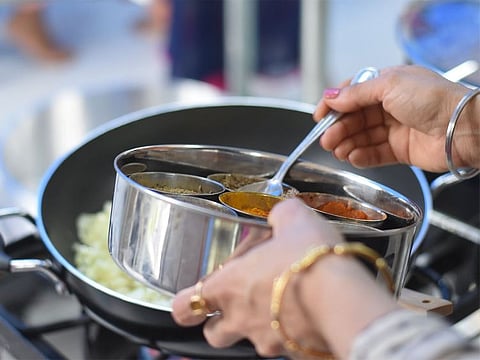Coronavirus: Indian man in precautionary quarantine refused to eat food prepared by a Dalit, booked by police
The spectre of the Indian caste system rears its ugly head despite COVID-19 fears

Caste discrimination and untouchability might be illegal in India, but the practices still exist. A man in coronavirus precautionary quarantine was booked by the police, in the Indian state of Uttar Pradesh (UP), after a First Information Report (FIR) was file against him last week for allegedly refusing to eat food cooked by a Dalit or a person belonging to the lowest rung of India's old social system based on caste. Instead, he went home, breaking the quarantine protocol. News reports that were shared on April 13, went viral many Indian tweeps.
Twitter users who shared the news said it was absurd, especially in the time of a global pandemic, to be holding on to outlawed beliefs that are over 2000 years old.
Reportedly, the man was identified as Seraj Ahmad from Bhujouli Khurd village in the district of Kushinagar in UP, as per the FIR. He was housed at a quarantine centre set up in a primary school in the village along with four others after he returned from Delhi on March 29. The village head, Lilawati Devi, who is a Dalit, went to the quarantine centre and prepared food for the five people lodged there due to the cook's absence. However, Ahmad refused to eat the food cooked by her.
The Human Rights Watch (HRW) notes that India's caste system is perhaps the world's longest surviving social hierarchy.
According to an HRW report: "A defining feature of Hinduism, caste encompasses a complex ordering of social groups on the basis of ritual purity. A person is considered a member of the caste into which he or she is born and remains within that caste until death, although the particular ranking of that caste may vary among regions and over time. Differences in status are traditionally justified by the religious doctrine of karma, a belief that one's place in life is determined by one's deeds in previous lifetimes. In order of precedence these are the Brahmins (priests and teachers), the Ksyatriyas (rulers and soldiers), the Vaisyas (merchants and traders), and the Shudras (labourers and artisans). A fifth category falls outside this system and consists of those known as "untouchables" or Dalits; they are often assigned tasks [considered] too ritually polluting [such as garbage collection]...."
Article 15 of the Constitution of India prohibits discrimination based on caste and Article 17 declared the practice of untouchability to be illegal. But, this law doesn't deter those who adamantly continue to follow the system.
According to an article on telegraphindia.com, there were two people who walked out, both middle-aged, who later told local reporters on Saturday morning: “We have never taken food cooked by a Scheduled Caste [Dalit] person. We have been here for the past two weeks and taking food cooked at home. Mostly, we walk down to our home in the morning and evening, and then return to the centre.”
According to the same report Lilawati said: “Every person is living in fear of the pandemic. I decided to cook the meal for the five quarantined people of the area on the request of senior officers. I wear a mask and gloves and leave the plates at their door every morning and evening. But two of them told me they wouldn’t eat something touched by a Dalit. I have no problem with them, as all those who support me and those who oppose, belong to my own village. I informed the officers over the phone.”
According to the police, an inquiry has been ordered into the complaint of the village panchayat chief. An officer said: "Block officers have been asked to ensure that people must take food cooked at the centre by the village chief and legal action will be taken against those who violate the norms of the quarantine centre.”
The officer said none of the quarantined five had any symptoms but would be kept there for 28 days before they are allowed to go home.
According to latest figures released by the state government, 448 people have tested positive in Uttar Pradesh so far and over 5,000 have been kept in quarantines centres. Four people have died and about 80 have been discharged after treatment. However, Kushinagar has so far been free of the disease.
Sign up for the Daily Briefing
Get the latest news and updates straight to your inbox







